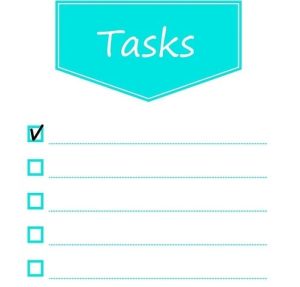Balancing Freelance Writing with Life Commitments
Ah, freelance writing—the dream job where you get to work in your pajamas, sip artisanal coffee, and bask in the glow of your laptop screen at your favorite café. But let’s be real: balancing freelance writing with life commitments can feel like juggling flaming swords while riding a unicycle on a tightrope.
Between deadlines, family responsibilities, personal passions, and that ever-looming laundry pile, maintaining harmony can seem impossible.
But fear not! With a few practical strategies, you can master the art of balancing work and life without sacrificing your sanity or your love for writing. Grab your favorite beverage, and let’s dive in.
1. Define Your Boundaries (And Actually Stick to Them)
When your office is also your living room, bedroom, or that corner of your kitchen table, boundaries become blurry fast. Friends and family might assume you’re always available just because you’re at home. And let’s not even talk about the temptation to binge-watch Netflix during what’s supposed to be a “productive writing block.”
Solution: Create clear boundaries for your work hours and communicate them firmly. Whether you’re working 9–12 every morning or pulling evening writing marathons, let everyone know: “These hours are sacred. Disturb me only if something is on fire.”
Bonus tip: Have a designated workspace, even if it’s just a specific chair or corner. When you’re in that spot, you’re in work mode.
2. Prioritize Your Tasks Like a Pro
 Not all tasks are created equal. Some deadlines are more pressing than others, and some projects require peak creative energy. Without a plan, it’s easy to waste time on tasks that could have been done later—or not at all.
Not all tasks are created equal. Some deadlines are more pressing than others, and some projects require peak creative energy. Without a plan, it’s easy to waste time on tasks that could have been done later—or not at all.
Solution: Start each day with a prioritized to-do list. Use tools like Trello, Asana, ClickUp, or a simple notebook to outline your tasks. Identify your MITs (Most Important Tasks) and tackle those first. Your MITs should be the tasks that will move the needle the most—whether it’s completing a high-paying project, pitching to a dream client, or delivering work on a tight deadline.
Think of your tasks in terms of urgency and importance. Use the Eisenhower Matrix if you need help deciding what comes first:
- Important and Urgent: Do these immediately.
- Important but Not Urgent: Schedule these tasks.
- Not Important but Urgent: Delegate if possible.
- Not Important and Not Urgent: Consider eliminating these.
Pro tip: Break large projects into smaller, manageable chunks. Writing a 3,000-word article might feel overwhelming, but writing three 1,000-word sections suddenly seems doable. Set milestones for bigger tasks, and reward yourself after completing each stage.
Additionally, batch similar tasks together. For example, set aside a specific time for answering emails, another block for client calls, and a focused period for deep writing work. Context-switching (jumping from one type of task to another) eats up more time and mental energy than you realize.
Time Blocking for the Win: Dedicate specific hours to specific activities. For example:
- 9:00–11:00 AM: Writing Deep Focus Work
- 11:30–12:00 PM: Emails & Client Follow-ups
- 1:00–3:00 PM: Editing and Revisions
By organizing your day into blocks, you reduce decision fatigue and stay focused.
Lastly, be realistic about your daily workload. It’s tempting to cram as much as possible into your day, but overloading your schedule will only lead to burnout and frustration. Leave buffer time for unexpected tasks or creative slumps.
Prioritizing tasks isn’t about doing everything—it’s about doing the right things in the right order. Productivity isn’t measured by how busy you are but by how effectively you use your time.
3. Learn to Say ‘No’ Without Guilt
Freelancers often fall into the trap of saying yes to every project that comes their way. After all, more work equals more money, right? But taking on too much can quickly lead to burnout, missed deadlines, and subpar work.
Solution: Practice saying no gracefully. If a project doesn’t align with your schedule, rates, or interest, politely decline. Remember: every ‘yes’ to one thing is a ‘no’ to something else—like sleep, sanity, or quality time with loved ones.
4. Embrace the Power of Routines
Routines might sound boring, but they’re a freelancer’s best friend. A solid routine can help you transition in and out of work mode, manage your time effectively, and ensure you’re not accidentally writing until 2 a.m. every night.
Solution: Establish routines that work for you. Start with identifying your peak productivity hours—are you a morning person who writes best with a sunrise coffee, or do you hit your creative stride late at night? Align your most challenging tasks with your high-energy hours.
Include a consistent start and end time to your workday. Even if your schedule shifts occasionally, having an approximate framework keeps you grounded.
Morning Rituals Matter: Start your day with a routine that energizes you. It could be as simple as a cup of tea and 10 minutes of journaling or a quick walk around the block. A steady morning routine sets the tone for a focused day.
Evening Wind-Down: Equally important is how you close your workday. Spend 10 minutes reviewing your to-do list for the next day, clearing your workspace, and shutting down your computer. A deliberate end-of-day ritual helps you mentally ‘clock out.’
Incorporate Non-Negotiables: Schedule activities like exercise, meal breaks, and even hobby time into your routine. These aren’t time-wasters—they’re investments in your long-term productivity and well-being.
Lastly, be flexible. Life happens—unexpected errands, family emergencies, or an unplanned creative slump. Build some wiggle room into your routine to handle disruptions without feeling derailed.
When routines are thoughtfully designed and consistently followed, they provide structure and reduce the mental load of constantly deciding what to do next. They become the scaffolding on which your freelance career thrives.
5. Take Breaks (Seriously, Take Them)
Ever find yourself staring blankly at your screen, words refusing to flow no matter how hard you will them into existence? That’s your brain telling you it needs a break.
Solution: Follow the Pomodoro Technique: work for 25 minutes, then take a 5-minute break. Every 4 cycles, take a longer 15–30 minute break. Use those breaks to stretch, walk around, or grab a snack. Your brain (and your body) will thank you.
6. Don’t Neglect Self-Care
Self-care isn’t just about bubble baths and scented candles—it’s about intentionally prioritizing your physical, mental, and emotional well-being. Writing is mentally demanding, and neglecting self-care can lead to burnout, writer’s block, and a decline in overall productivity.
Solution: Schedule self-care just like you would a client meeting. Whether it’s taking regular breaks, practicing mindfulness, exercising, or simply getting enough sleep, self-care should be non-negotiable. Small actions, like a five-minute stretch every hour or a short walk outside, can make a big difference.
Remember, you can’t pour from an empty cup. Take care of yourself so you can show up as your best, most creative self for your clients, your loved ones, and—most importantly—yourself.
7. Communicate Openly with Your Loved Ones
 One of the biggest challenges freelancers face is ensuring their loved ones understand the unique nature of freelance work. Unlike a traditional 9-to-5 job, freelance hours can be unpredictable, and deadlines can sneak up at the worst times.
One of the biggest challenges freelancers face is ensuring their loved ones understand the unique nature of freelance work. Unlike a traditional 9-to-5 job, freelance hours can be unpredictable, and deadlines can sneak up at the worst times.
Solution: Have honest conversations with your family, partner, or roommates about your work commitments. Explain your schedule, the importance of uninterrupted focus time, and how they can support you.
That being said, you should also actively listen to their needs and concerns. Open communication is a two-way street, and showing empathy for their perspective helps foster mutual respect.
Make time for regular check-ins to discuss how things are going. Maybe set aside a family meeting each week to align schedules and address any frustrations. This can prevent misunderstandings before they grow into bigger issues.
Lastly, don’t just communicate about problems—share your successes, too! Celebrate completed projects, share exciting feedback from clients, and let your loved ones see the value of what you do. This not only keeps them in the loop but also makes them feel like a part of your freelance journey.
Clear communication builds stronger relationships and makes balancing freelance work and personal life much smoother.
8. Know When to Log Off
Freelance writing can easily blur the line between work and personal life, especially when you have deadlines looming. But working endlessly without breaks isn’t sustainable.
Solution: Set a hard stop time each day. Once you hit that time, close your laptop, step away from your desk, and mentally clock out. Remember, there’s always tomorrow to finish that paragraph or respond to that email.
Logging off isn’t just about physical separation; it’s about mentally detaching from work. Avoid checking emails or brainstorming article ideas while spending time with family or relaxing.
Learn to trust yourself. The work will get done—but only if you allow yourself time to rest and recharge.
9. Celebrate Your Wins (Big and Small)
Freelance writing can sometimes feel like an endless grind, especially when you’re juggling multiple clients and deadlines. Taking time to celebrate your achievements is essential.
Solution: Did you finish a tough article? Land a new client? Meet your income goal for the month? Celebrate! Whether it’s treating yourself to a fancy coffee, a day off, or a victory dance in your living room—acknowledge your hard work.
10. Be Kind to Yourself
Some days you’ll feel like a productivity machine, cranking out words effortlessly. Other days, just writing a single paragraph feels like climbing Everest. And that’s okay.
Solution: Don’t beat yourself up on low-energy days. Writing is a creative process, and creativity doesn’t always stick to a strict schedule. Show yourself grace, and trust that productivity will return.
Ready to Balance it Out?
Balancing freelance writing with life commitments isn’t about achieving perfect harmony every day—it’s about finding a rhythm that works for you. Some weeks will be work-heavy; others will lean more towards family or self-care.
The key is to remain flexible, intentional, and kind to yourself.
So set those boundaries, take those breaks, and remember: you’re not just a freelance writer—you’re a human being. Now go forth and write, rest, and repeat!
